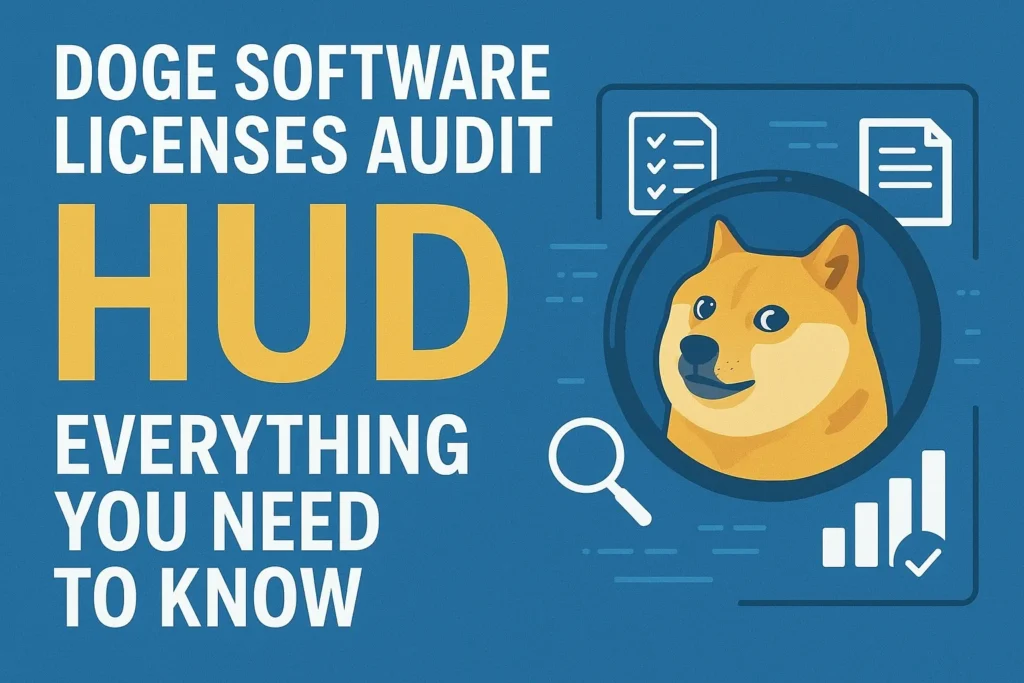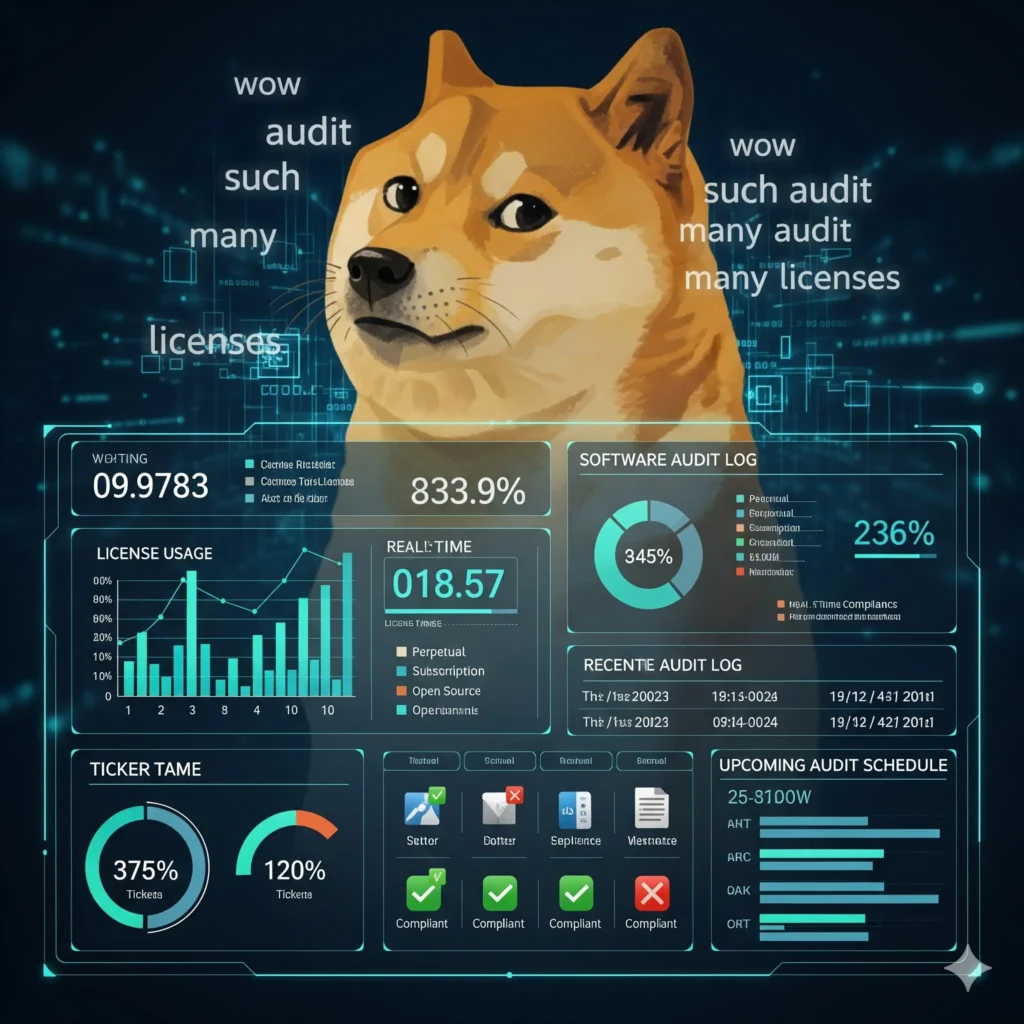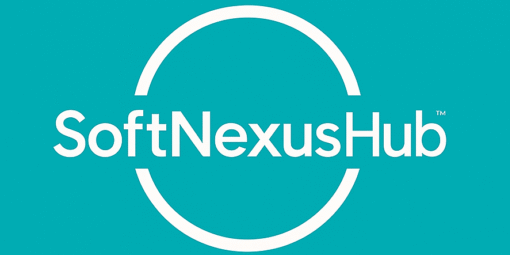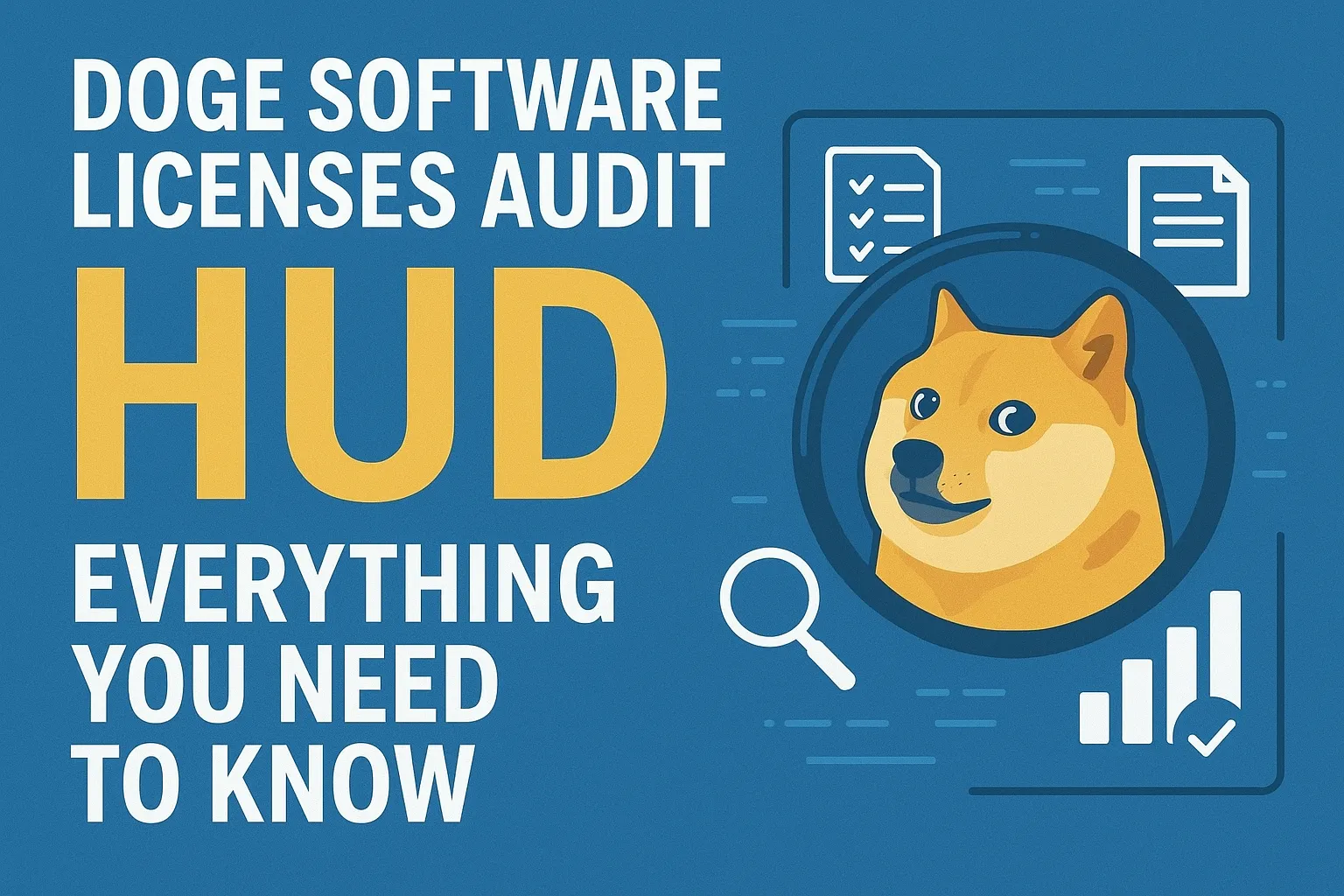
In today’s fast-paced digital world, software is everywhere. From government agencies to private companies, organizations rely on hundreds—sometimes thousands—of applications to keep things running smoothly. But here’s the catch: every piece of software comes with its own license, and keeping track of all of them can feel like a never-ending puzzle.
That’s where the doge software licenses audit hud comes in. Think of it as a real-time, interactive dashboard that gives you a clear picture of your organization’s software license usage. Instead of digging through spreadsheets or waiting for annual audits, this tool keeps you updated instantly—helping you avoid legal trouble, security risks, and wasted money.
What Is the Doge Software Licenses Audit HUD?
Despite the “Doge” name, this isn’t about cryptocurrency memes. The doge software licenses audit hud is an automated dashboard designed to track, monitor, and analyze all your software licenses—whether they’re open-source, proprietary, or hybrid.
The “HUD” part (short for Heads-Up Display) is what makes it special. Just like a pilot’s cockpit display, it shows you the most important details at a glance:
Which licenses you’re using
Which ones are about to expire
Where compliance risks might pop up
Instead of running audits once a year, you get a live feed of your license health—fully integrated into your development and IT workflows.
Why Software License Auditing Matters
Some might wonder, “Do we really need another dashboard?” The answer is yes—and here’s why.
Legal risks
Using software without the right license, or misusing an open-source license like GPL, can lead to lawsuits and hefty fines.
Security concerns
Unlicensed or outdated components often don’t get security patches, leaving your system vulnerable to attacks.
Financial waste
Paying for unused or duplicate licenses can quietly drain your IT budget. Many organizations are shocked when audits reveal millions wasted on software no one even touches.
Government accountability
For public agencies like HUD (the U.S. Department of Housing and Urban Development), license audits aren’t just about cost—they’re about transparency and public trust.
Core Features of a Doge Software Licenses Audit HUD

A strong license audit HUD usually includes:
License Inventory – Automatically scans and logs every license across your software stack.
Real-Time Dashboard – Shows compliance issues, risks, and upcoming expirations in one place.
Policy Engine – Lets you set rules (e.g., block AGPL licenses, flag expensive proprietary ones).
Audit Trails & Reports – Generates documentation for internal reviews or regulators.
Analytics Tools – Visual insights like heatmaps, cost-saving opportunities, and risk scoring.
Integrations – Works with GitHub, GitLab, CI/CD pipelines, IDEs, and security platforms for seamless monitoring.
How It Works in Practice
Here’s a simple workflow of how a doge software licenses audit hud operates:
Real-World Example: HUD License Waste
During a government audit, massive inefficiencies were uncovered:
35,855 ServiceNow licenses but only 84 were used
Over 11,000 Adobe Acrobat licenses with zero users
10,000 Java licenses for just 400 users
Imagine how much money could have been saved if a license audit HUD had been in place from the start. That’s the kind of oversight this tool was built to prevent.
Benefits for Different Roles
Developers → See license restrictions right inside their IDEs and avoid compliance headaches later.
Legal & Compliance Teams → Get ready-to-use reports and policy enforcement tools.
CTOs & IT Leaders → Gain visibility, cut costs, and keep regulators happy.
Government Agencies → Build trust with taxpayers by showing responsible software spending.
Common Challenges (and How to Tackle Them)
No system is perfect, and license auditing comes with its own set of hurdles:
Unclear licenses – Some open-source projects don’t clearly define their license.
Legacy software – Older systems may lack proper records.
Scanner mistakes – Automated tools sometimes mislabel licenses.
Department silos – Different teams may not follow the same rules.
Best practices like quarterly audits, centralized license storage, and team training help reduce these issues.
The Future of License Auditing
The next generation of doge software licenses audit hud systems is already taking shape. Expect to see:
AI-powered alerts that predict risks before they become problems.
Blockchain-style logs that make audit records tamper-proof.
Shared benchmarks so organizations can compare license health across industries.
Open-source HUD platforms that evolve with community contributions.
Conclusion
The doge software licenses audit hud isn’t just a fancy dashboard—it’s a smarter way to manage software governance. By turning license management into a proactive, continuous process, it helps organizations stay compliant, save money, and strengthen trust.
If you haven’t already, start by reviewing your current software licenses. From there, consider piloting a HUD system. After all, every unused license isn’t just wasted money—it’s an opportunity waiting to be recovered.
FAQs
FAQS
Q1: What is the Doge Software Licenses Audit HUD?
A: It’s a real-time dashboard that monitors software license usage, tracks compliance, and helps organizations avoid legal, financial, and security risks.
Q2: Why do companies need a license audit HUD?
A: To prevent overspending on unused licenses, ensure legal compliance with open-source rules, and protect against vulnerabilities caused by unlicensed software.
Q3: How does the Doge Software Licenses Audit HUD work?
A: It scans repositories, tags licenses, checks compliance, updates dashboards in real time, and generates reports for audits and governance.
Q4: Who benefits from using this tool?
A: Developers, compliance teams, CTOs, and government agencies can all gain visibility, reduce costs, and simplify regulatory reporting.
Q5: What challenges come with software license audits?
A: Common issues include unclear license terms, legacy software without proper records, and automated scanners misclassifying licenses.

